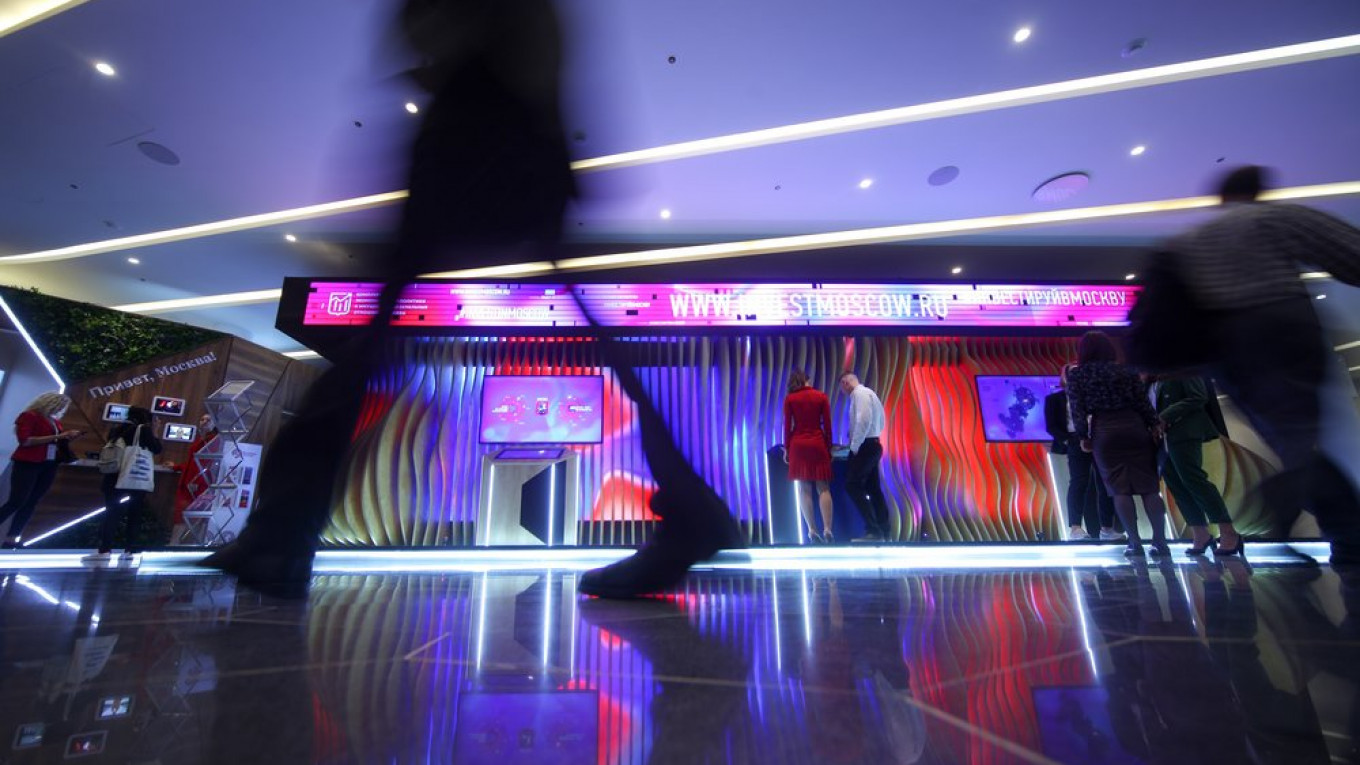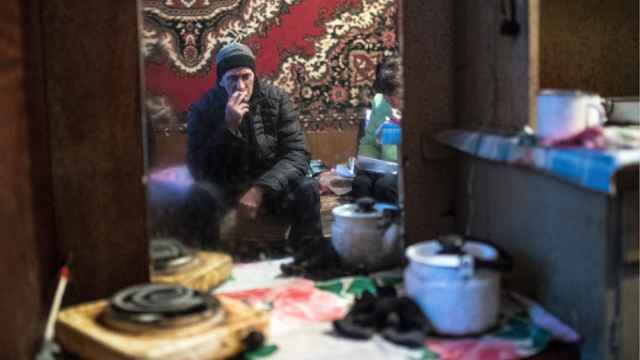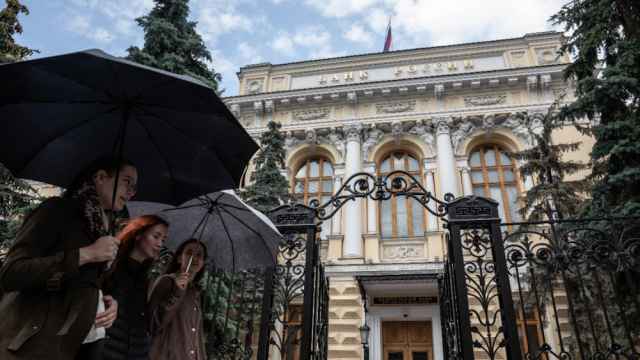Arguments over whether or not a consumer loan bubble is forming in Russia are of major practical value. However, the discussion among ministers from the financial and economic bloc and the central bank about the nature and dangers of this phenomenon has turned out to be so emotional that it has unwittingly revealed severe jitters at the highest level about the state of the national economy. When there is no opportunity to talk directly about problems, they will still make themselves known through signal flares in the form of heated debate.
The problem is that people don’t have money — the real disposable income that has been the main barometer of the state of the Russian economy since Russia’s annexation of Crimea in 2014 — and so they are taking out loans. This is why we can physically feel the trepidation of the financial and economic authorities.
Today, what can at a stretch be described as economic policy essentially boils down to collecting additional cash from the population and spending it on goals indicated by the state via the national projects and social payments. These goals take up a gigantic proportion — comparable with Soviet times — of that same real disposable income.
There were also illusions back in the early 1990s that the state knew better than the market where money should be spent and where it should not. This was known as “growth points” and “selective industrial policy,” and naturally was a complete failure. But since the state has now become the main economic player, there are no other options left.
Now there is a multitude of pseudonyms for state intervention in the economy, such as “national projects” and “special investment contracts.” Every step taken by any state manager is constrained by the surrounding maze of KPIs that managers are forced to navigate constantly and which they have to account for instead of just getting on with their work, just as any doctor in our country has to file reports instead of treating patients, and any teacher does instead of teaching.
Together, all of this stands in for a free market economy, accounting for a large proportion of the domestic product of small and medium-sized private business, a high level of foreign direct investment, and a sizeable portion of revenues from assets and entrepreneurship within the structure of real disposable incomes.
The state has no intention of abandoning its strict control over the economy or its formation of what is metaphorically called the “investment climate” by staging interventions via the FSB, Investigative Committee, prosecutor’s office, and other security agencies. Nor does it plan to move away from the union of bureaucracy and businesses close to the state. But this raises questions. Where can more money be found to spend on social handouts, national projects, and other mechanisms for buying people’s loyalty? What other instruments can be used to reclaim revenues? What can be done about the very bleak mood among consumers, and most importantly about real incomes?
The paths to solving these problems lie in the opposite direction to the practices of state capitalism. In private conversations and off-the-record interviews, professional state management specialists say that business should under no circumstances come into contact with the state. This is virtually impossible in a system in which the state is everything, yet anyone who wants to be successful must avoid contact with it as if with a highly toxic substance. The state will either create bad blood, seize the business, or appropriate a profitable idea, having mangled it and stripped it of any effectiveness.
The national projects just can’t seem to get off the ground, because nothing about them is comprehensible, from the mechanics of them, which are hard to manage, to the priorities, which are as a rule vague and chosen at random, according to experts in each of the sectors of industry to which the national projects relate. Various forms of public-private partnerships coupled with social responsibility do not salvage the situation; they only exacerbate it.
The West can’t help us here: Any halfway rational relations have unraveled. The East is a tricky business, and there are not that many specialists in the meaning of Iranian nods or enigmatic Chinese smiles. Plus it’s easy here to get sucked into someone else’s game as the junior partner to an older brother.
Hence the trepidation among the (once) progressive officials, who have already forgotten how to speak the truth to the leadership. What if the debt bubble suddenly bursts, how will people behave? People will be left without money, while the authorities are making plans to build an extremely expensive high-speed highway that will inevitably turn out to be unprofitable and exorbitantly expensive to operate. The bridge to Sakhalin Island in Russia’s Far East can be added to this list, as can the planned transformation of the ancient monastery town of Sergiev Posad into the Russian Vatican — at a diabolical cost.
The appearance of this kind of project is a very bad sign. Plans to divert Siberian rivers, build gigantic oil and gas facilities, and other impressive fantasies by the “pragmatist economists” arose on an industrial scale precisely when the Soviet budget deficit started to grow at a catastrophic rate, and the model of the administrative command economy began to collapse in plain view.
At that time, the best lobbyists turned out to be the ministers who were the first to smell the odor of decay and rush to take what they could. In an article by Yegor Gaidar and Viktor Yaroshenko titled “Zero Cycle: Analyzing the Mechanism of Institutional Expansion,” published in 1988 in Communist magazine, this system was called the “zero-cycle economy”: It was easiest to scoop out huge amounts of money for a large project and then bury this money in the foundations of a major nationwide construction project.
“No one is surprised,” wrote Gaidar and Yaroshenko more than thirty years ago, “that it is not uncommon for a decision to be made first, and only afterward, in a semi-optional procedure, is its viability assessed.” This is reminiscent of today’s dicey practices.
In the final years of the Soviet Union, the state also thought that it was enough to complete a structural maneuver using money, and that the economy would begin to stir. Instead of today’s “breakthrough,” the stated goal was “acceleration,” and money was poured into machine-building as though into sand.
Why machine-building? It was supposed to become the locomotive of science and technology. Today we also adhere to a sacred belief in a technology breakthrough, but for some reason our plans to transport trash for burial in the forests of Arkhangelsk are not so high-tech, and the main breakthroughs, alas, occur at dams.
Has anyone been saved from the deadly consequences of the recent flooding in the Irkutsk region by digitalization, KPIs, or managerial competitions? No.
And so representatives of the financial-economic block are showing signs of nerves: They will have to answer for all that. After all, they have KPIs.
This article was originally published by RBC.
A Message from The Moscow Times:
Dear readers,
We are facing unprecedented challenges. Russia's Prosecutor General's Office has designated The Moscow Times as an "undesirable" organization, criminalizing our work and putting our staff at risk of prosecution. This follows our earlier unjust labeling as a "foreign agent."
These actions are direct attempts to silence independent journalism in Russia. The authorities claim our work "discredits the decisions of the Russian leadership." We see things differently: we strive to provide accurate, unbiased reporting on Russia.
We, the journalists of The Moscow Times, refuse to be silenced. But to continue our work, we need your help.
Your support, no matter how small, makes a world of difference. If you can, please support us monthly starting from just $2. It's quick to set up, and every contribution makes a significant impact.
By supporting The Moscow Times, you're defending open, independent journalism in the face of repression. Thank you for standing with us.
Remind me later.








